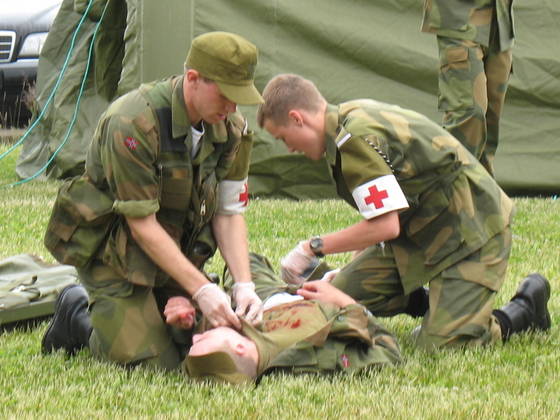Summary
The process of prioritizing actions that can reduce the most suffering is not about being cold and unfeeling; it's about channeling our praiseworthy desire to help in ways that can do the most good. Triage is an ideal to strive for, though we should also remember to stay within the limits of our willpower to avoid burnout.
Translations:
- German: .pdf
Introduction
Utilitarianism emphasizes efficiency: Doing the most possible good. But isn't this standard for use of one's time and money too demanding? As long as one is making some sort of positive impact on the world, isn't that enough? Consider the following.

Example. Imagine a military doctor who comes across a battlefield laden with hundreds of injured soldiers in severe pain. The doctor calls for assistance, but the additional medical units will not arrive for thirty minutes. However, the doctor happens to have with him a bag of pain medicine that he can use to palliate the suffering around him. Would it be acceptable for him to treat five of the soldiers and then stop to read a comic book, arguing that he has produced some positive change and he needn't spend all of his effort helping others? Similarly, would we countenance his decision to spend most of his limited supply of pain killer on the mildly injured patients nearest to him, even though many of those a bit farther away are in absolute agony? I believe that the answers ought to be "no." Rather, triage—giving greatest medical attention to those who can be helped most in the least amount of time—represents the ethical imperative under these circumstances.
Yet how are other situations any different? In choosing how to spend one's time, what to do with one's money, what to pursue in one's career, and how to devote one's life, we are making the same choice as the doctor wondering whether to treat suffering patients or read a comic book; the only difference is that the consequences of the latter option are not so immediate and tangible. Similarly, decisions as to which efforts to pursue and which actions to undertake are tantamount to the choice that the doctor faces regarding which patients to treat. Those who say, "I realize that this undertaking will not relieve as much suffering as possible, but at least I'm doing something," are in effectively the same position as the doctor who treats only those mildly injured patients nearest to him, because he is "at least doing something."
Triage as "warm and calculating"
But isn't this focus on efficiency cold-hearted? Doesn't strict triage neglect the pain of those who don't get preferential treatment? For example, people sometimes scoff at legitimate concerns about large pecuniary expenditures on the grounds that it's insensitive to care about money when lives are at stake. In the real world, though, we can't do everything. Resources are limited, and we inevitably face choices between helping one being or another. It is precisely the sympathy that we feel for those animals left homeless by a hurricane, for instance, that so fervently motivates us to devote our money toward more efficient ways of ameliorating animal suffering. Triage is not an act of harshness; it represents the highest form of mercy and compassion.
I should add that the focus on efficiency is a matter of principle, but in practice, humans have limited willpower, and it's usually best to go soft to avoid turning people away and to maintain our own well-being.
This piece was also published on 80,000 Hours.